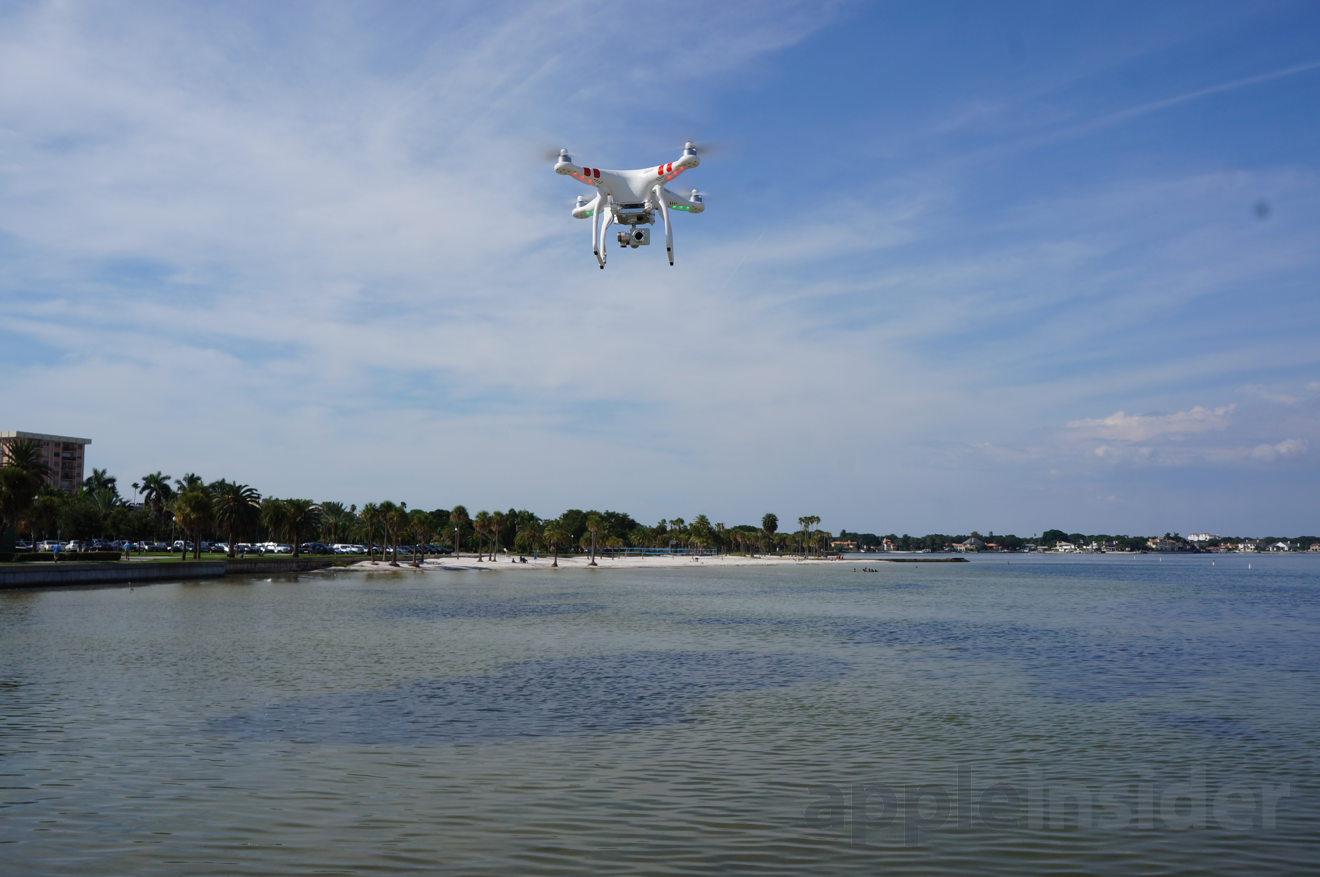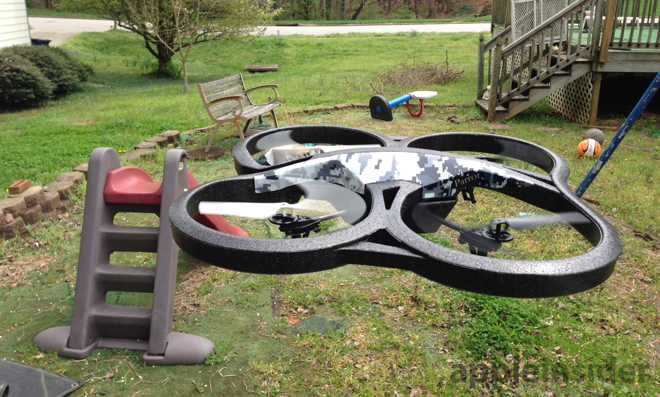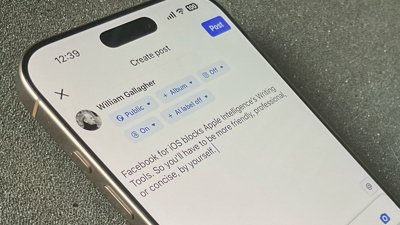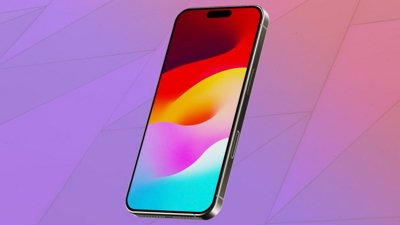The U.S. Federal Aviation Administration has proposed a set of rules that would restrict the use of drones in the sky, placing new qualifications on private enthusiasts and seemingly striking a serious blow to Amazon's airborne delivery plans.
The FAA rules published this week remain under consideration, but they would prevent small unmanned aircraft from being flown outside of visual line-of-sight. The rules would also ban piloting of drones, like the iPhone-connected Parrot AR or DJI Phantom, over people below who aren't directly involved in the operation.
Under the proposal, drone pilots would need to be at least 17 years old and would need to pass an aeronautics test to receive a license. They would also need to be vetted by the Transportation Security Administration.
The FAA's proposed regulation would also restrict drone flight to the daytime, and vehicles may not weigh more than 55 pounds or fly more than 100 miles per hour. The maximum altitude of an in-flight drone would be 500 feet above ground level, and using first-person live camera views, like those that connect to Apple's iPhone, does not satisfy the line of sight requirement.
The rules, if passed, would not only place new restrictions on enthusiasts, but could also present major roadblocks for Amazon's proposed drone delivery service.
The Amazon Prime Air concept was unveiled by the online retailer in late 2013, showing how unmanned drones could be used to deliver products quickly directly to a person's front door. The plan has been met with skepticism about the safety and reliability of allowing automated, unmanned aerial vehicles in the sky.
Specifically, Amazon's pilot program showed drones being flown out of human line of sight, and over houses, buildings and people on the ground below, both of which would be in violation of the FAA's proposed new rules.
For now, before the rules are finalized, Amazon has said it remains committed to its Prime Air vision. In a statement to Time, the company said it's "prepared to deploy" where it has regulatory support.
The FAA's proposal also includes the possibility for more flexible "micro" drones under 4.4 pounds. That could allow greater flexibility for enthusiast and hobbyist drone flyers like the Parrot AR.Drone 2.0, which weighs less than a pound with its indoor hull, or the DJI Phantom 2 Vision+ weighing in at 2.7 pounds.
"We have tried to be flexible in writing these rules," said FAA Administrator Michael Huerta. "We want to maintain today's outstanding level of aviation safety without placing an undue regulatory burden on an emerging industry."
 AppleInsider Staff
AppleInsider Staff


-m.jpg)






 William Gallagher
William Gallagher

 Andrew O'Hara
Andrew O'Hara
 Wesley Hilliard
Wesley Hilliard

 Malcolm Owen
Malcolm Owen
 Marko Zivkovic
Marko Zivkovic





-m.jpg)




65 Comments
The FAA rules also kill my plans for a new moving company: One Guy and a Drone
Good. I see a bleak future for drones. They should be banned completely, save for nature programmes and maybe the odd AI view of Apple Campus 2.
[quote name="Cpsro" url="/t/184809/proposed-faa-rules-would-restrict-private-drone-use-potentially-nix-amazon-drone-deliveries#post_2676911"]The FAA rules also kill my plans for a new moving company: One Guy and a Drone [/quote] You must have been developing a powerful drone battery for moving grand pianos.
You must have been developing a powerful drone battery for moving grand pianos.
Disassemble, reassemble. Saw, glue. Whatever it takes! Never had a dissatisfied customer. (No customers yet.)
WOW. I knew the Amazon flying drone delivery service was a poor idea and would be regulated out of existence. This is what the new regulations look like! A thirty second pause to think is all that's required to spot the thousand reasons why this is a no-go. Can you imagine the security nightmare? These things are not track able by radar. Nuff said.